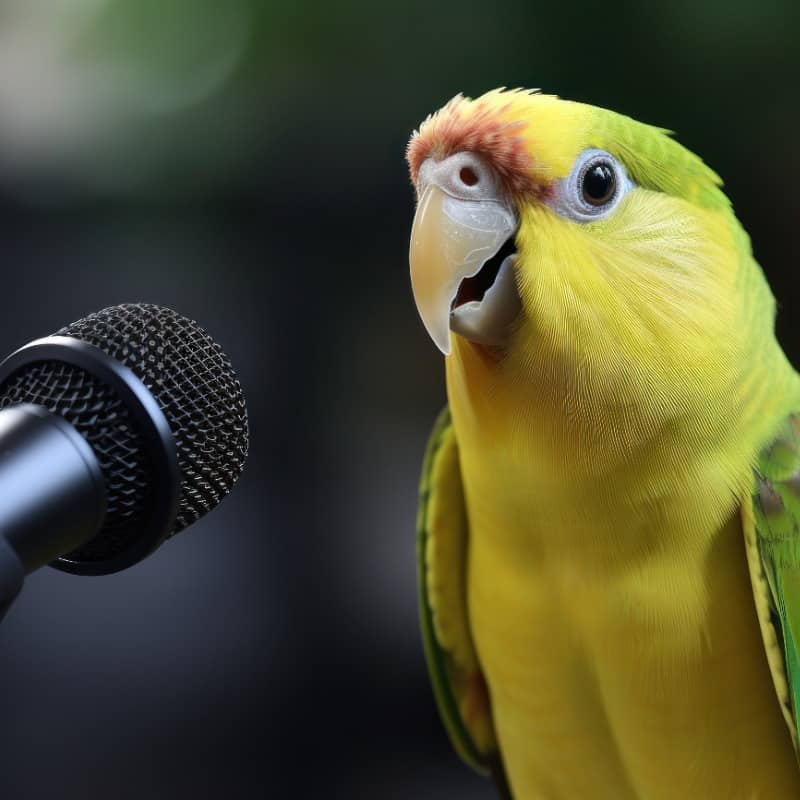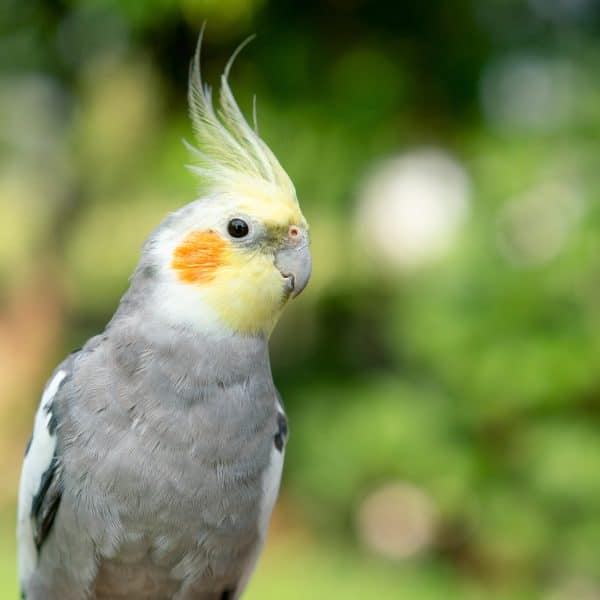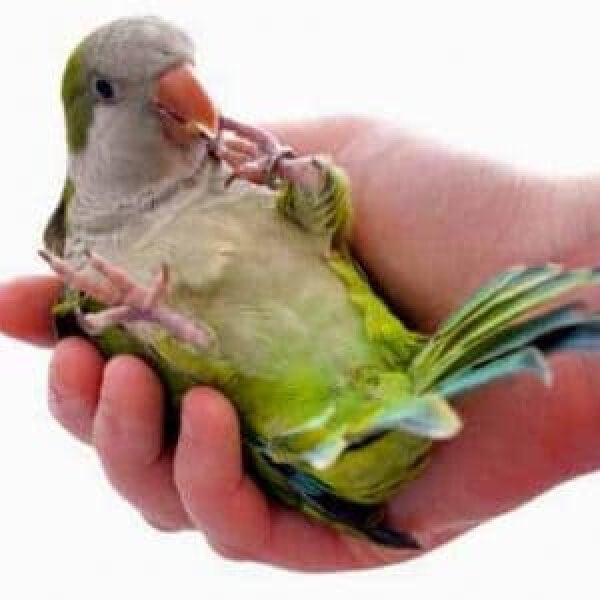
How Can I Get My Bird to Talk?
Last Updated on by Mitch Rezman
Some birds in the wild imprint their chicks voices through the shell so as to differentiate their own and not end up feeding parasitic chicks left by birds like cuckoos and cowbirds, Bird calls are regularly used to influence these fluid winged societies. And make no mistake about it, your birds have the ability to communicate with you, they are not just little tape recorders (I’m old).
It’s generally thought that whales, porpoises, bats, humans and of course parrots are the only animals to have vocal communications at a complex level. When you and I speak, we use our face, our lips and our mouth to help round out sounds that are produced by our vocal cords.
Where we have a pharynx, parrots have something called a syrinx. Think kazoo – it, (the syrnix) connects where the lungs and windpipe come together. Their tongue plays a very small role in speech.
Parrots have a hard time telling the difference between “a” and “i” sounds and their brains work differently than ours too. Parrots are unique from other species of birds in that they have greater control over the “form” of their voice. Where wild species of bird calls come from nature’s engineering, parrot’s sounds rely more on many of the sounds of their environment.
Amazons come in a very close second, smaller parrots like budgies andCockatiels also can learn to talk (watch the amazing video below). Growing up I had a next-door neighbor, Mrs. Massey with a parakeet that spoke words in four languages. Macaws and cockatoos can talk but their vocabulary tends to be more limited than the Greys and Amazons.
And there’s really no rhyme or reason as to will “any bird talk”? Even though your bird doesn’t repeat a word it doesn’t mean it doesn’t understand its meaning which by the way are two completely different thought processes for birds.
I think even though we bring home a bird with the hope that they will learn to talk over time, we eventually accept them for their overall personalities not just their ability or lack thereof, to vocalize, To encourage vocalization your overall relationship with your bird has to be strong and trusting with your bird being relaxed when he’s around you.
Remember when you first bring a bird home they don’t know who you are and they may assume you are a predator not a new flock mate. A full day of full spectrum natural or artificial sunlight in a full night of sleep a regular basis is very helpful.
Much like I learned in sales for many years, “how” you say it is as important, if not more so important to birds than “what” you say. Your bird should sense that he or she has your undivided attention when training them to speak. When using the Mimic Me there should be no other background noise.
Start with small words to three syllable words or phrases. Make sure you speak slowly but enthusiastically. As for the time spent, a few minutes in the morning and the early evening because birds tend to be a little more receptive at these times.
Be consistent with your words and your actions.say “Scratch your head” when scratching their head. ? “Do you want to come out”? when opening the cage door. And try naming their toys so they can relate words to the toys. The more they associate words actions, the better chance you’ll have a vocalization.
Lastly remember nothing mechanical can fully replace the physical interaction you have with your bird.
Thank you for being a subscriber
Author Profile
Latest entries
 Feeding Exotic BirdsDecember 29, 2025How to Switch or Convert Your Bird From Seeds to Pellets: Real-Life Case Studies and Practical Guidance
Feeding Exotic BirdsDecember 29, 2025How to Switch or Convert Your Bird From Seeds to Pellets: Real-Life Case Studies and Practical Guidance Feeding Exotic BirdsDecember 16, 2025A Practical, Budget-Smart Guide to Feeding Birds Well
Feeding Exotic BirdsDecember 16, 2025A Practical, Budget-Smart Guide to Feeding Birds Well Bird EnviornmentsDecember 7, 2025Understanding Budgie Cage Bar Orientation: Myths, Realities & Practical Solutions for Vertical-Bar Bird Cages
Bird EnviornmentsDecember 7, 2025Understanding Budgie Cage Bar Orientation: Myths, Realities & Practical Solutions for Vertical-Bar Bird Cages Feeding Exotic BirdsDecember 5, 2025How Dr. T.J. Lafeber Rewrote the Future of Pet Bird Nutrition
Feeding Exotic BirdsDecember 5, 2025How Dr. T.J. Lafeber Rewrote the Future of Pet Bird Nutrition


